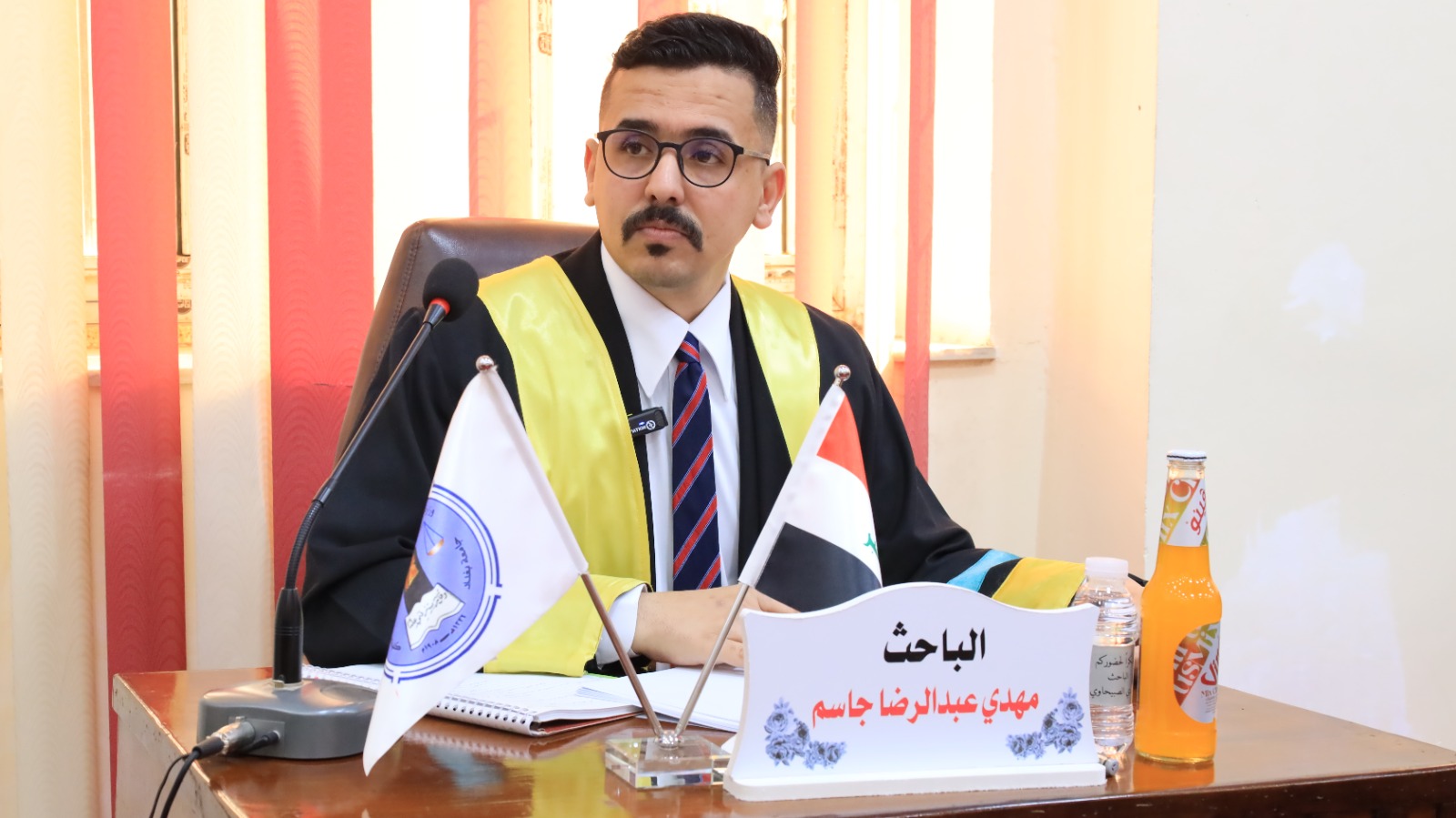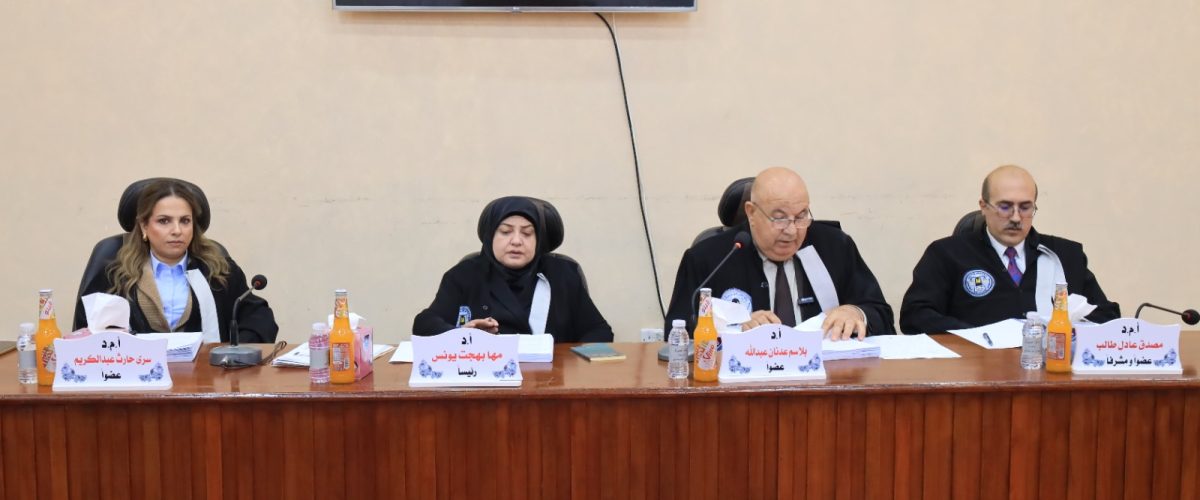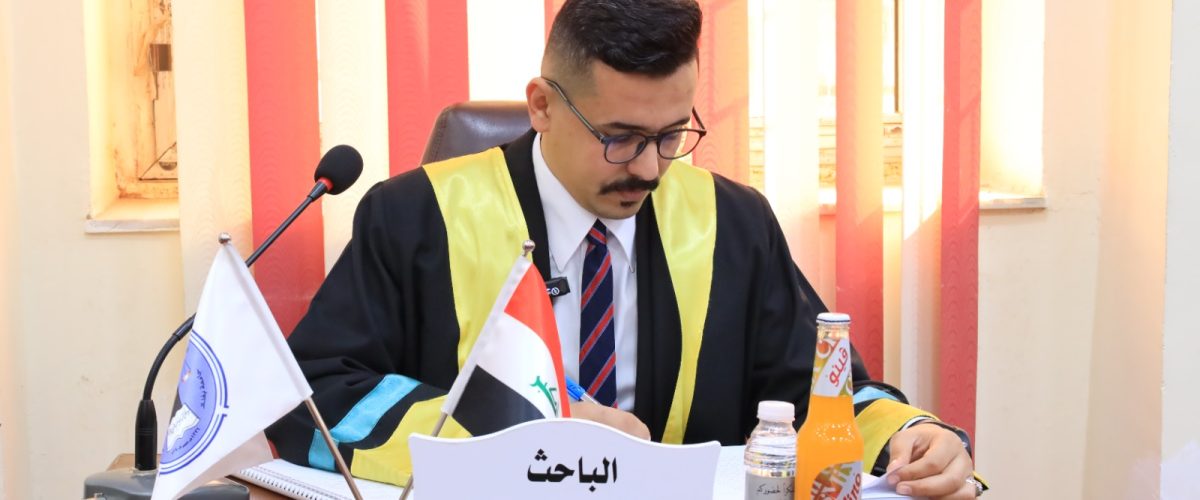The College of Law at the University of Baghdad discussed the master’s thesis in the public law by student Mahdi Abdul Redha Jassim, titled “The Constitutional and Legal Organization of the Voting Phase in Elections,” on Thursday, February 13, 2025, in the college’s conference hall.
The discussion committee consisted of:
- Prof. Dr. Maha Bahjat Younis – Chairman
- Prof. Dr. Blassem Adnan Abdullah – Member
- Asst. Prof. Dr. Sura Harith Abdul Karim – Member
- Asst. Prof. Dr. Musaddiq Adel Taleb – Member
The study aimed to analyse the constitutional and legal organization of the voting phase in elections, focusing on evaluating constitutional texts and electoral laws, while striving to ensure the integrity of the electoral process at all stages, particularly the voting phase. This contributes to protecting the peaceful transfer of power, reducing political crises, and ensuring the stability of the democratic system.
The thesis was divided into two main sections: the first section addressed the concept of voting and its legislative basis, while the second section focused on judicial oversight of the voting phase.
The thesis concluded with several important recommendations, the most notable of which are:
- Achieving legal stability in electoral laws and preventing frequent changes with each parliamentary cycle, as this affects judicial principles and the independence of the Federal Supreme Court.
- Defining the precise jurisdiction of the election judiciary body and establishing a specialized court to consider election appeals, which should be financially and administratively independent, with its decisions subject to appeal before the Federal Supreme Court.
- Amending the Independent High Electoral Commission Law of 2019 by eliminating the lottery system for selecting judges and reducing the term of the members of the Board of Commissioners.
- Accelerating the approval of the Federal Supreme Court Law and amending some of its powers to ensure the independence of its decisions and prevent interference in its judicial jurisdiction.
- Enacting a new election law and submitting it for a popular referendum, in line with the principle that the people are the source of all powers.
- Combining the system of absolute majority and proportional representation to achieve a balance in voter representation.



